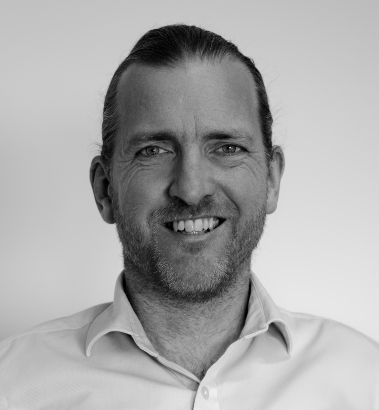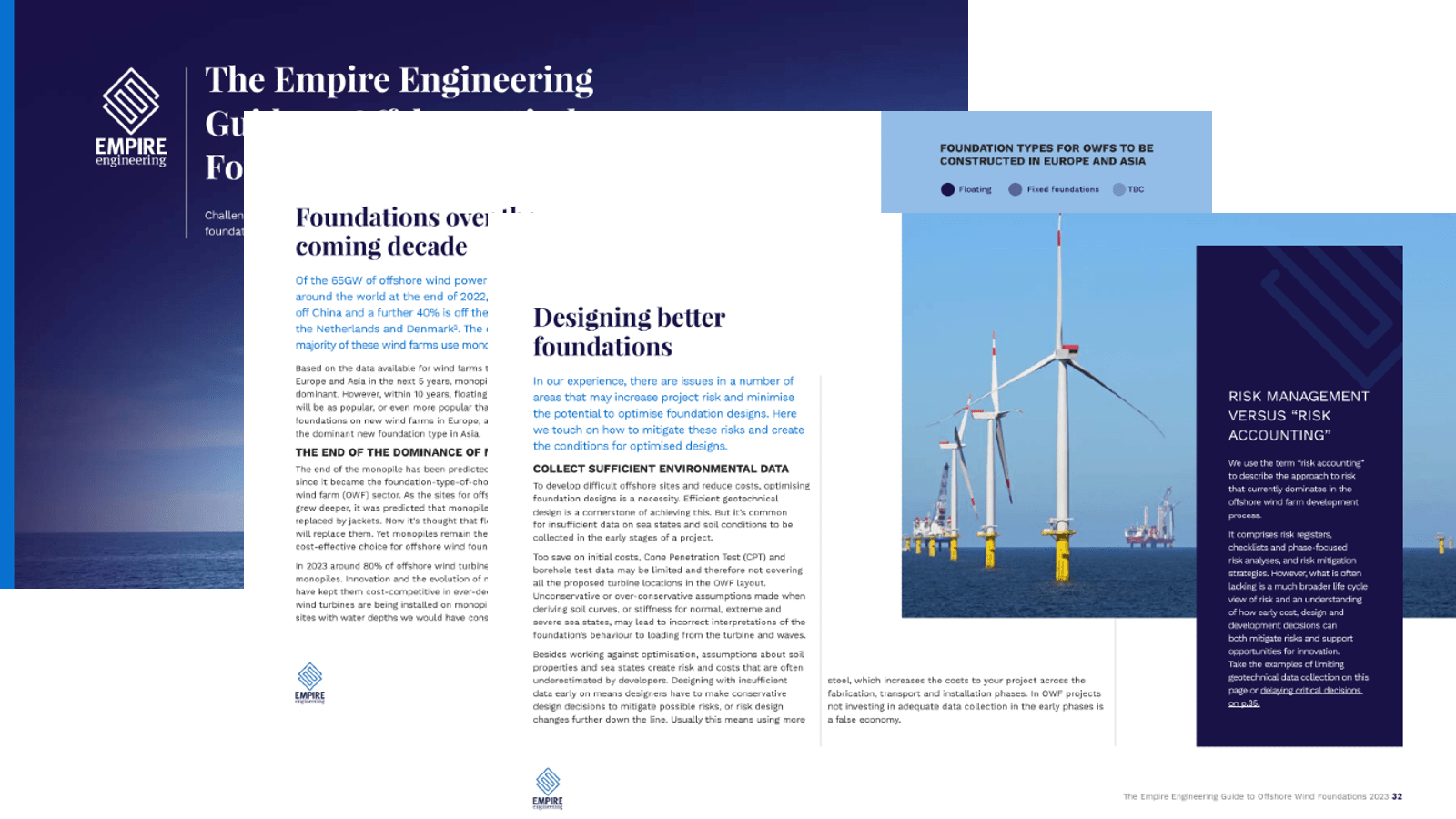Al Dennis has recently joined as Principal Engineer at Empire – and brings with him a wealth of wisdom on offshore wind. We sat down to discuss why he joined Empire, how he sees the future of offshore wind and what litter picking can teach you about being a good engineer.
From a love of logic puzzles to wind turbines
“It’s the maths, the way it’s applied to the world and the feeling that you’re helping people have better lives, essentially.” Al is explaining the motivation that has driven a successful career in structural engineering. “I’ve always liked maths, logic puzzles, that kind of thing. So in a way I’ve just followed that path of enjoying working with numbers – having a problem and finding a solution.”
Al has been brought into Empire to oversee design processes and orchestrate the way we deliver novel answers to client problems. The fact that we specialise in offshore wind was also a big draw. Having spent the first part of his career designing bridges, schools and hospitals, Al’s growing awareness of climate breakdown led him to pivot into offshore wind.
“The more I read about climate breakdown, the more I felt I should do something about it. I try and do as much as I can on a personal level, but then you’ve got the shadow of what you do at work. I realised I could help the world and myself by getting into offshore wind.”
Flash forward to today and Al has now been working exclusively in offshore wind for over a decade. And with that has come an acute awareness of some of the challenges facing the industry.
“We’re at an interesting point in the industry…”
“In the time I’ve been working in offshore wind, the industry has ballooned massively. It seems like the industry’s gone from a very small number of test floating wind farms and all of a sudden these areas are absolutely massive. In the UK especially, a lot of the newer sites that will be developed are in really deep water – and everyone’s talking about changing to something that floats and is fixed to the seabed with mooring, which is a whole different way of doing things.”
The speed and scale at which the industry has grown has led to well-documented production bottlenecks. “Currently a lot of foundations are built in China and then shipped across. But a lot of these floating concepts are too big for even large vessels. They can be towed, but is that really efficient?”
Al’s hunch is that floating wind infrastructure will have to be built closer to their offshore sites. “It will be great for local communities and domestic economies. But you need really big ports to build all these things and I don’t see much evidence of that happening. It’s a catch-22: no single project is large enough to fund the development of a port, but without that port none of the projects can work. There are big economic limits that we seem to be bumping up against. I’m intrigued how that’s going to pan out.”
A renaissance of UK steel?
Might the inefficiencies of shipping floating wind infrastructure from China lead to a renaissance of UK steel? Al doesn’t think that’s out of the question.
“There’s so many sites and availability of wind in the UK, there’s definitely an opportunity to redevelop steel skills domestically. Then we can start exporting these skills. It seems like a no brainer to me. But it’s how we develop that industrial plan as a country – whether there’s the strategic desire to do that from government. And if there is, who pays for it?”
In the short term at least, a more viable alternative to steel might be to begin building more concrete foundations. “In the UK, concrete seems like a really good choice of material. There are loads of concrete skills in the UK.”
These are big questions without clear answers; the type of questions that can shape national economies. But for all the need to think big, Al retains a strong sense of community – regularly picking up litter in the park near his house.
From turbines and transition pieces to gloves and grabbers.
“Following a litter pick, I can look back and say: ‘I did that, and the community is now in a better state.’ I think that’s part of keeping yourself balanced from a mental health perspective too – volunteering a bit of your time and helping other people. We’re all part of a community, aren’t we? It links back to why I’m an engineer.”
And for Al it’s not just about helping people but recognising that a strong sense of community is crucial to a successful engineering project. “This might be an urban myth, but there’s a story about the guy who swept the floors at NASA saying he put man on the moon. And I’m on board with that.”
“Most of the offshore projects I’ve worked on have had some kind of unexpected challenge. The design team almost always has an unexpected problem to solve, which is healthy because it forces novel thinking. But if you can understand the client’s position and all the different personalities in a project, that project is going to go much better. It’s about having the empathy to work with different teams – and really understand how they work and what they need.”
What are some of the challenges you faced?
“There was a lot of challenging technical work. It was a lot to take in with a high volume of work coming in.
As I was working on multiple projects simultaneously I was also learning to manage myself and my time. One of the most important things I learnt was knowing what I can and can’t do, and where I needed to ask for help.
It was an opportunity to self-reflect and ask for more support where needed, whilst also being able to acknowledge if a task wasn’t suited to my skills.”
Would you recommend Empire Engineering to others?
“Yes, I would absolutely recommend Empire Engineering to others, especially for anyone starting out in offshore wind. It’s a small and niche field, so if you are transferring into the industry or going into the working world it is a very good place to start. I feel this way because of the support and the opportunities to learn quickly, while feeling useful and carrying out meaningful work.”
Reach out to Al on LinkedIn or read more about Empire Engineering’s offshore wind expertise.
Empire specialists can effectively and efficiently assist with your offshore wind project. To find out more, please get in touch with the team at Empire Engineering.


